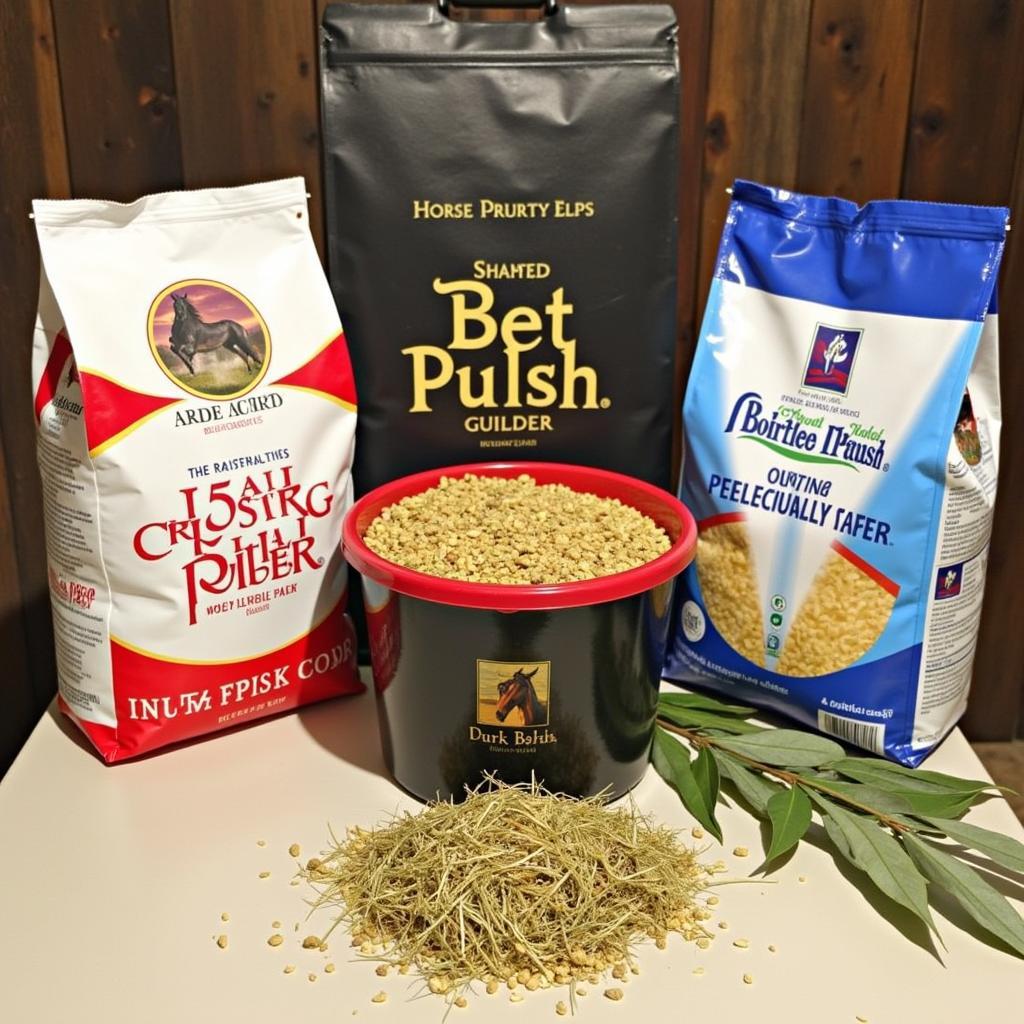Keeping pesky flies away from your horse is a year-round battle, but did you know that your choice of horse feed can play a crucial role in fly control? It’s true! By understanding the link between your horse’s diet and fly attraction, you can make informed decisions that contribute to a more comfortable and fly-free environment for your equine companion.
How Horse Feed Affects Fly Attraction
Flies are attracted to certain smells and substances, some of which can be influenced by your horse’s diet. Here’s how:
- Undigested Nutrients: Inefficient digestion can lead to undigested nutrients being excreted in manure, creating a feast for flies. Choosing high-quality, easily digestible horse feed minimizes this issue.
- Fermentation: Some feeds, particularly those high in starch or sugar, can ferment in the hindgut, producing odors that attract flies.
- Manure Consistency: Diet directly impacts manure consistency. Loose manure, often a result of poor-quality feed or digestive upset, provides an ideal breeding ground for flies.
Choosing the Right Feed for Fly Control
Selecting the right horse feed is the first step in an effective fly control strategy:
- Prioritize Quality: Opt for high-quality horse feed from reputable brands. Look for feeds with digestible fiber sources like alfalfa or timothy hay, as well as balanced protein, vitamins, and minerals.
- Manage Starch and Sugar: While horses need some starch and sugar for energy, excessive amounts can contribute to fly problems. Choose feeds with moderate levels and consider your horse’s individual needs and workload.
- Support Digestion: A healthy digestive system is key to minimizing fly-attracting manure. Consider adding a digestive supplement to your horse’s diet, especially during transitions to new feeds.
 Various Horse Feed Options
Various Horse Feed Options
Beyond Feed: A Multi-Faceted Approach to Fly Control
While feed plays a significant role, a comprehensive fly control plan incorporates other essential practices:
- Manure Management: Regularly remove manure from stalls, paddocks, and pastures to eliminate breeding grounds. Consider composting manure properly or using a fly predator program.
- Fly Sprays and Repellents: Apply fly sprays and repellents to your horse as directed, choosing products that effectively deter the types of flies common in your area.
- Fly Traps and Baits: Strategically place fly traps and baits around your barn and pastures to attract and eliminate adult flies.
- Stable Hygiene: Maintain a clean and dry stable environment by regularly cleaning stalls, removing soiled bedding, and ensuring proper ventilation.
Expert Insights
“Remember, fly control isn’t a one-size-fits-all approach,” advises Dr. Emily Carter, a veterinarian specializing in equine care. “Factors like your horse’s breed, age, activity level, and overall health, along with your geographic location and climate, all play a part in determining the most effective strategies.”
“It’s about finding what works best for your horse and your situation,” Dr. Carter emphasizes. “Don’t hesitate to consult with your veterinarian or an equine nutritionist for personalized guidance.”
Conclusion
Controlling flies around your horse involves a holistic approach, with feed playing a vital role. By understanding how your horse’s diet can attract flies and choosing the right feed to support digestion and minimize attractants, you can create a more comfortable and enjoyable environment for both you and your equine partner. Remember to combine dietary strategies with other fly control methods for optimal results.
For more information on horse care, explore our other articles on topics like “first time horse owner” and “garlic for horses fly control”
Need help finding the perfect boarding facility for your horse? Check out our guide on “horse pasture boarding near me“
Browse our wide selection of horse product to find everything you need for your equine companion.
Concerned about potential hazards in your horse’s pasture? Read our informative article on “johnson grass and horses” to learn more.
For personalized support and assistance, contact us at:
Phone Number: 0772127271
Email: [email protected]
Address: QGM2+WX2, Vị Trung, Vị Thuỷ, Hậu Giang, Việt Nam
Our dedicated customer care team is available 24/7 to assist you.